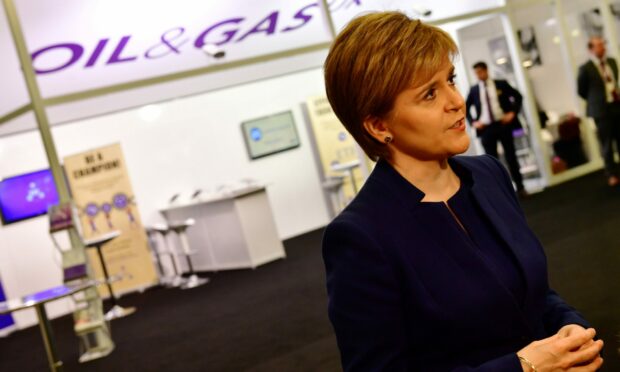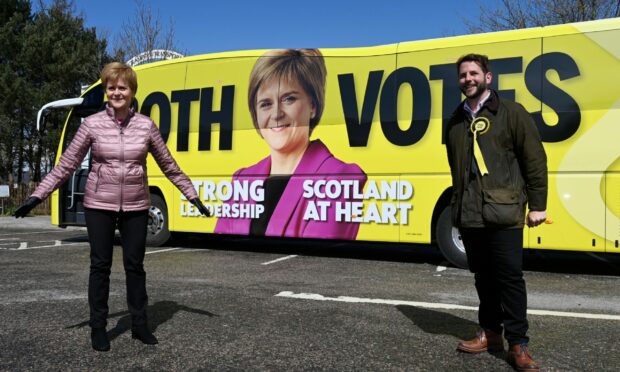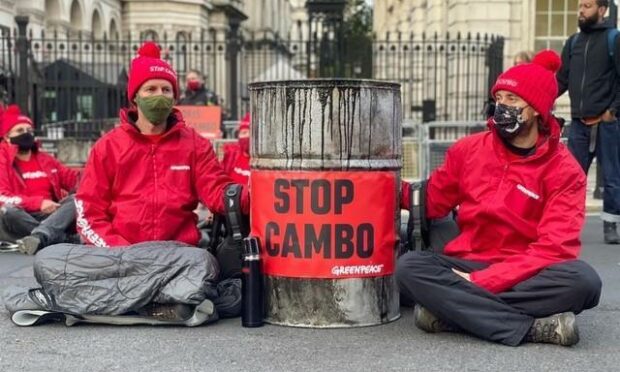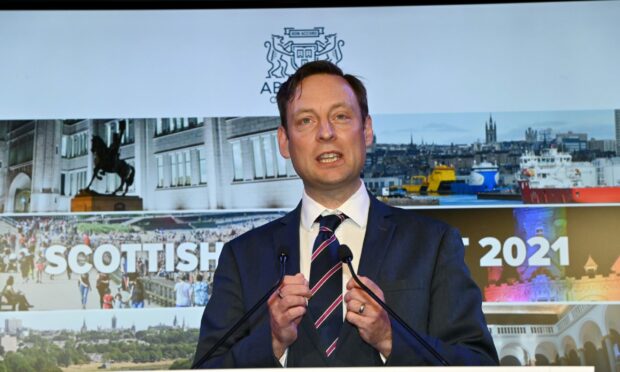Nicola Sturgeon faces claims she has dramatically pulled back from pre-election promises made to voters on her support for North Sea oil and gas.
The first minister had previously admitted in March there were “big things” the next parliament would have to “confront and face up to” in response to the climate crisis.
However, in one of her last newspaper interviews before the vote, she told us of the dangers of trying to rapidly “draw a line” under North Sea exploration and extraction.
She said it would make Scotland “more dependent on imported oil and gas”.
The SNP leader also told young climate activists that it was their generation who would pay the price if the transition away from fossil fuels was too fast.
If we don’t do it properly, the same young people that are pushing politicians to be really bold in terms of climate will be the young people that we leave behind in terms of jobs and opportunities.”
Nicola Sturgeon, May 5 2021
The remarks contrast with those made by the first minister in Holyrood earlier this week.
She said on Tuesday that the shift away from oil and gas should happen “as quickly as possible”.
Ms Sturgeon also told MSPs she did not now think “we can continue to give the go-ahead to new oilfields”, such as the controversial Cambo development, west of Shetland.
Her comments follow the COP26 climate conference in Glasgow, as well as the SNP’s cooperation agreement with the Scottish Greens.
They represented a significant turnaround for a party which once campaigned on the basis that “it’s Scotland’s oil”, and which made the North Sea a foundation stone of the economic case for independence ahead of the 2014 referendum.
And they have gone down badly with some in her own party.
Fergus Mutch, the SNP’s former head of communications and research, said blocking Cambo would lead to “unemployment and more imported oil for decades”.
What did Nicola Sturgeon say pre-election?
We asked Ms Sturgeon about her stance on the future of the North Sea, and the views of the Scottish Greens, during an interview on the SNP’s election battle bus on May 5.
She said: “I understand why people say we’ve got to end oil and gas exploration and extraction now, but we’ve also got to make sure our energy needs are catered for.
“If we just basically draw a line and take a sort of axe to oil and gas right now, whatever the climate motivations of that might be, all we will end up doing is making ourselves more dependent on imported oil and gas.”
If we just basically draw a line and take a sort of axe to oil and gas right now, whatever the climate motivations of that might be, all we will end up doing is making ourselves more dependent on imported oil and gas.”
Ms Sturgeon added: “There are few people in politics in Scotland more committed to the transition to net zero than me – I feel really strongly that we have to live up to that responsibility.
“But we’ve got to do it properly, because if we don’t do it properly then the same young people that, rightly, are pushing politicians to be really bold in terms of climate will be the young people that we leave behind in terms of jobs and opportunities.”
The first minister also recalled the impact of the de-industrialisation she witnessed growing up Ayrshire in the 1970s and 1980s, and the need to avoid any repeat.
“I think all of us have to be determined that that will not happen,” she said.
What is her view on the North Sea now?
On Tuesday, during an update on the COP26 summit, Ms Sturgeon admitted that her policy on the North Sea sector had shifted.
“People who pay any attention to what I say on the issue will see that I have changed my position, and that of my party and of the government, because I do not think that we can be credible on such things unless we accept the responsibility of moving away from fossil fuel,” she said.
‘Quickly as possible’
“The oil and gas sector is, and has been for some time, important in Scotland when it comes to jobs, infrastructure, expertise and supply chain benefit, and we have to make that transition properly and carefully.
“However, there is no doubt in my mind that we need to do that as quickly as possible.”
Announcing her opposition to Cambo for the first time, Ms Sturgeon said: “I do not think that we can go on extracting new oil and gas forever – that is why we have moved away from the policy of maximum economic recovery – and I do not think that we can continue to give the go-ahead to new oilfields, so I do not think that Cambo should get the green light.”
What do her opponents say?
The Scottish Tories seized on earlier comments made by the first minister.
Liam Kerr, north-east MSP and Scottish Conservative energy spokesman, said: “Before the election, it appears the first minister at least talked a good game about the future of the North Sea.
“The facts have not changed but she has plainly U-turned to build a nationalist coalition.
The facts have not changed but she has plainly U-turned to build a nationalist coalition.”
“Up to 100,000 Scottish jobs, many of them in the north-east, rely on planned, responsible movement towards renewables.
“The SNP have deserted them – and reason itself – because of a blind obsession with independence.
“The UK needs to produce oil and gas to satisfy the domestic demands which still exist.
“And the industry is working with the UK Government to meet our carbon net zero obligations across the whole country.”
What’s the Scottish Government position?
A Scottish Government spokesman said they are committed to a transition that leaves no one behind.
In a statement, the government said “unlimited” extraction of fossil fuels is not consistent with climate obligations.
“Our focus must now be on achieving the fastest possible just transition for the oil and gas sector – one that delivers jobs and economic benefit, and also ensures our energy security and meets our climate obligations,” the spokesman said.
The government said it plans a 10-fold increase in installed offshore wind capacity in the next decade – enough to power more than 8 million homes – and to more than double the country’s onshore wind capacity by 2030.
The statement added: “To ensure a just transition for the oil and gas sector – one which supports good green jobs, skills and expertise – we are undertaking a programme of work and analysis to better understand Scotland’s energy requirements as we transition to net zero, ensuring an approach that supports and protects our energy security and our highly skilled workforce whilst meeting our climate obligations.
“Far from deserting the sector, we are already investing in its net zero transformation, including through our Energy Transition Fund, which we recently expanded to £75m.
“Our £500 million Just Transition Fund – which we have called on the UK Government multiple times to match – will support the north-east and Moray as one of Scotland’s centres of excellence for the transition to a net zero economy, with our investment supporting transformation across the region.”



